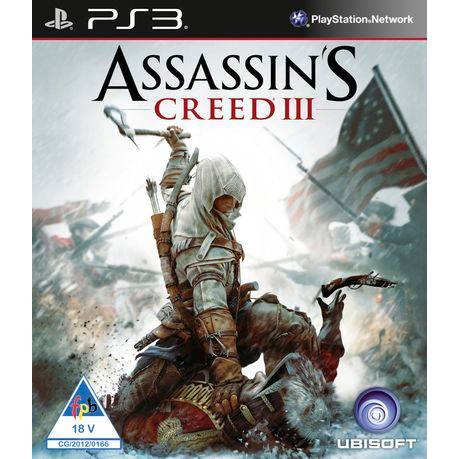
| Main centres: | 1-3 business days |
| Regional areas: | 3-4 business days |
| Remote areas: | 3-5 business days |
Status:
--------------------------------------------------------------------------------------------------------------
Assassin's Creed - PS3 Review
Assassin's Creed, developed by Ubisoft, was first released in 2007 and became a groundbreaking title in the action-adventure genre. The game introduced players to the historical world of Assassins, featuring an open-world experience, parkour mechanics, and a gripping storyline. The PS3 version of Assassin's Creed is particularly notable for its stunning visuals, immersive world-building, and innovative gameplay for its time. While the game received widespread acclaim, it also faced some criticism due to its repetitive gameplay and certain design flaws. Below is an in-depth review.
Assassin's Creed is set during the Third Crusade in 1191, following the journey of Altaïr Ibn-La'Ahad, a skilled assassin tasked with eliminating key targets in the Holy Land. The story unfolds through both modern-day and historical sequences. In the modern setting, you play as Desmond Miles, who is captured by a company called Abstergo and forced to relive the memories of his ancestor Altaïr through a machine called the Animus. As Altaïr, players embark on a mission to assassinate nine key figures who are causing political and religious turmoil during the Crusades.
The storyline is unique, blending historical events with a science fiction framework that explores themes of memory, genetic inheritance, and the power of knowledge. While the historical part of the game is intriguing, the overarching modern-day narrative about Abstergo and Desmonds involvement in the larger conflict hints at future storylines in the series. Its a great set-up for the sequels, offering a deep lore that players could look forward to exploring further.
However, the story does feel a bit underdeveloped at times, particularly in the modern-day sequences, which feel more like a vehicle to move between the past's events rather than an integral part of the experience. The focus on the Crusades and Altaïrs personal journey provides more engagement, though some players may find themselves less invested in the secondary narrative.
At its core, Assassin's Creed is an open-world action-adventure game, offering a large, dynamic world to explore with a combination of stealth, combat, and parkour mechanics. The games innovative mechanics were revolutionary at the time, but some aspects show their age today.
Parkour & Free-Running: The highlight of Assassin's Creed is Altaïrs ability to seamlessly scale buildings, jump across rooftops, and engage in free-running. The controls, while intuitive, are not always perfect, especially when trying to precisely control the characters movements. Altaïrs acrobatic ability allows for smooth, fluid movement through the games cities, and this mechanic was groundbreaking for its time, setting the foundation for future titles in the series.
Combat: The combat system in Assassin's Creed is simple but effective, primarily based on counterattacks. Altaïr can engage in sword fights with enemies using a variety of attacks, but the most effective tactic is waiting for an enemy to strike and then countering with a well-timed move. This system works well in most situations but can feel repetitive after a while. There's a lack of depth in combat